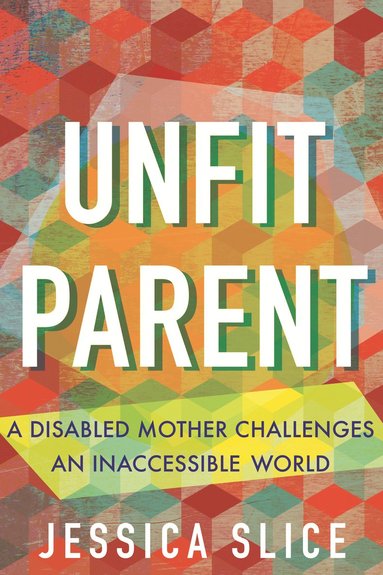Kommande

399:-
Navigating the joys, stigma, and discrimination of disabled parenting—and how the solutions offered by disability culture can transform the way we all raise our kids
Jessica Slice’s disability is exactly what her child needed as a newborn. After becoming disabled a handful of years prior from a shift in her autonomic nervous system, Jessica had done the hard work of disentangling her worth from productivity and learning how to prepare for an unpredictable and fragile world. Despite evidence to the contrary, nondisabled people and systems often worry that disabled people cannot keep kids safe and cared for, labeling disabled parents “unfit,” but disabled parents and culture provide valuable lessons for rejecting societal rules that encourage perfectionism and lead to isolation.
Blending her experience of becoming disabled in adulthood and later becoming a parent with interviews, social research, and disability studies, Slice describes what the landscape is like for disabled parents. From expensive or non-existent adaptive equipment to inaccessible healthcare and schools to the terror of parenting while disabled in public and threat of child protective services, Slice uncovers how disabled parents, out of necessity, must reject the rules and unrealistic expectations that all parents face. She writes about how disabled parents are often more prepared than nondisabled parents to navigate the uncertainty of losing control over bodily autonomy. In doing so, she highlights the joy, creativity, and radical acceptance that comes with being a disabled parent.
While disabled parents have been omitted from mainstream parenting conversations, Slice argues that disabled bodies and minds give us the hopeful perspectives and solutions we need for transforming a societal system that has left parents exhausted, stuck, and alone.
Jessica Slice’s disability is exactly what her child needed as a newborn. After becoming disabled a handful of years prior from a shift in her autonomic nervous system, Jessica had done the hard work of disentangling her worth from productivity and learning how to prepare for an unpredictable and fragile world. Despite evidence to the contrary, nondisabled people and systems often worry that disabled people cannot keep kids safe and cared for, labeling disabled parents “unfit,” but disabled parents and culture provide valuable lessons for rejecting societal rules that encourage perfectionism and lead to isolation.
Blending her experience of becoming disabled in adulthood and later becoming a parent with interviews, social research, and disability studies, Slice describes what the landscape is like for disabled parents. From expensive or non-existent adaptive equipment to inaccessible healthcare and schools to the terror of parenting while disabled in public and threat of child protective services, Slice uncovers how disabled parents, out of necessity, must reject the rules and unrealistic expectations that all parents face. She writes about how disabled parents are often more prepared than nondisabled parents to navigate the uncertainty of losing control over bodily autonomy. In doing so, she highlights the joy, creativity, and radical acceptance that comes with being a disabled parent.
While disabled parents have been omitted from mainstream parenting conversations, Slice argues that disabled bodies and minds give us the hopeful perspectives and solutions we need for transforming a societal system that has left parents exhausted, stuck, and alone.
- Format: Inbunden
- ISBN: 9780807013243
- Språk: Engelska
- Antal sidor: 240
- Utgivningsdatum: 2025-04-15
- Förlag: Beacon Press

